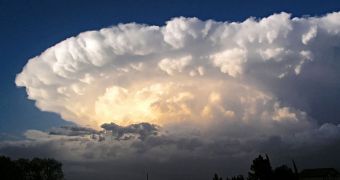At this point, authorities only develop emergency responses that focus on those with physical injuries and trauma-related conditions, say investigators in the United States, but this approach is incomplete.
The team explains that more emphasis should be placed on those who are at risk of developing mental health issues as a result of the disaster they experienced. The latter may be a flood, a tornado or supercell storm, a terrorist attack or some other kind of disaster.
In a recent study, for example, experts showed that the effects the March 11 earthquake that struck Japan had on the population were devastating in terms of coping with the tragedy mentally. The magnitude 9 tremor produced a massive tsunami that killed thousands.
Triaging and managing those suffering from, or at risk of developing, mental disorders should therefore be considered a priority as well following a disaster, the JHU experts propose in a new study.
“Disasters limit the availability of resources, and these groups are especially vulnerable because they cannot advocate for themselves,” says expert Peter Rabins, MD, MPH, quoted by PsychCentral.
“But little attention has been given to the ethical challenges that arise when resources are limited, to the importance of identifying these ethical issues ahead of time, and for establishing mechanisms to address these moral dilemmas,” he goes on to say.
The expert wrote his opinions in a commentary piece, that was published in the June issue of the esteemed journal Biosecurity and Bioterrorism. He explains that authorities have a tendency to overlook problems such as this one in general.
But Rabins suggests that those suffering from serious mental illnesses, such as schizophrenia, dementia, addictions and bipolar disorder, are severely affected by catastrophes, and therefore in need of professional assistance.
“Disaster-response managers and those on the front line are well aware that survivors may succumb to PTSD and other mental disorders,” Rabins goes on to say. He authored the commentary with colleague Nancy Kass, ScD.
“But sudden devastation also puts people with both lifelong and acquired intellectual disabilities in grave danger as well,” the JHU expert goes on to say.

 14 DAY TRIAL //
14 DAY TRIAL //